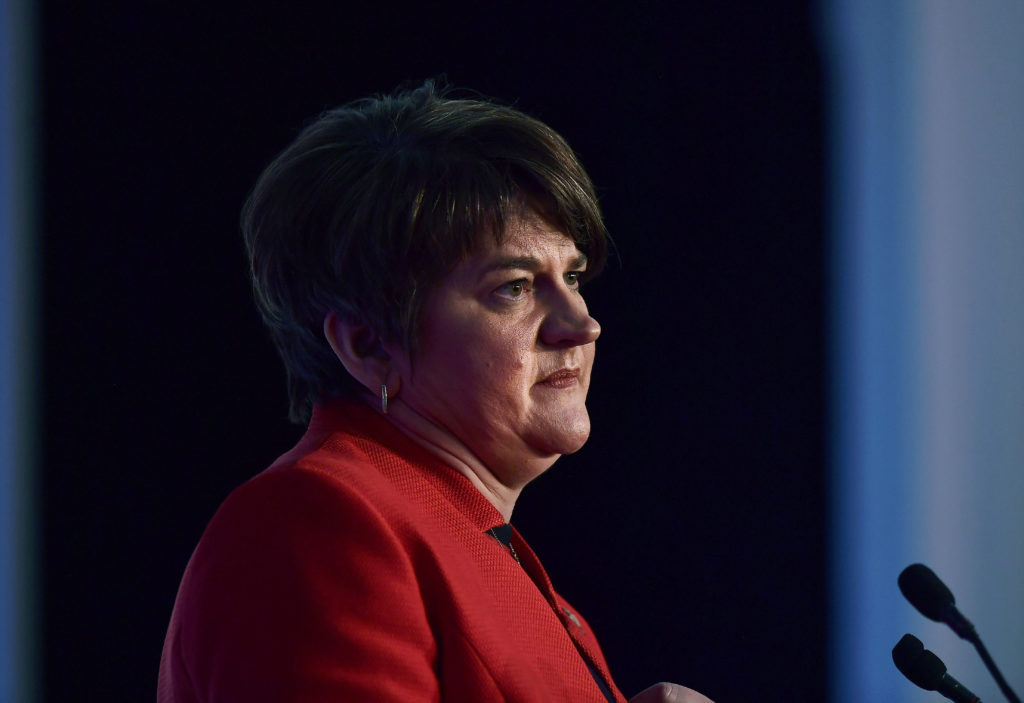ARLENE FOSTER has confirmed the Democratic Unionist Party (DUP) will not back Prime Minister Boris Johnson’s Brexit deal in Parliament.
The confirmation comes just hours after the UK and EY reached an agreement on a new Brexit deal. The deal was announced late on Thursday, October 17, hours ahead of a key EU Summit.
The deal is almost identical to the one put forward by former prime minister Theresa May, save for a political declaration on the relationship between Britain and the EU.
Crucially, the Northern Ireland backstop would be by a new arrangement that would see the North will continue to follow EU regulations on goods.
The DUP believes the news arrangements must be subject to the consent of both unionists and nationalists in Northern Ireland and a rolling review – but that these have been abandoned.
Writing in the Belfast Telegraph, Foster confirmed her party’s MPs would not vote for the deal.
The DUP leader was particularly critical of the consent mechanism which would mean elected representatives of Northern Ireland would have no say on whether Northern Ireland should enter these arrangements.
 DUP Leader Arlene Foster. (Photo by Charles McQuillan/Getty Images)
DUP Leader Arlene Foster. (Photo by Charles McQuillan/Getty Images)“Tomorrow our Members of Parliament will oppose the proposals. We worked intensively with the [British] government over recent weeks to try and reach a fair and balanced deal,” she wrote.
“We were not seeking a perfect deal,” she added. “It doesn’t exist. We were seeking a deal which delivered Brexit without erecting barriers to trade.”
“Dublin and Brussels belatedly reopened Mrs May’s deal having rigidly refused to do so. But the prime minister was under pressure and conceded too much by way of agreeing to greater east-west checks than necessary and settling for a one-sided consent mechanism.”
“While some progress has been made in recognising the issue of consent, the elected representatives of Northern Ireland will have no say on whether we enter these arrangements in the first instance, and the government has departed from the principle that these arrangements must be subject to the consent of both unionists and nationalists.”
“We will continue to work to shape those outcomes in Northern Ireland’s interests and our votes will be critical in that process.”

